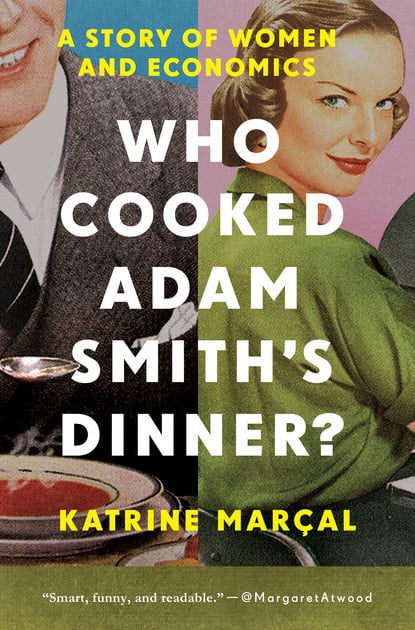
Who Cooked Adam Smith’s Dinner? is a fervent, feminist critique of Western economic thinking. Marçal argues that the ideas which animate popular understanding about the economy—the primacy of competition rather than cooperation, the essential self-interest of independent, rational “economic men”, and the belief that success in the market indicates virtue—are built on gendered assumptions that ignore women’s contributions and define positive economic activity and actors in opposition to supposedly feminine qualities. The book’s title alludes to Adam Smith’s fable about how his dinner was served courtesy of select self-interested actors: the butcher, the brewer, and the baker, who made and sold their goods for economic gain. Smith doesn’t, however, mention his mother, with whom he lived most of his life and whose domestic labor in fact provided meals on the table, clean clothes in the dresser, and a comfortable environment for work and living.
Although many of the book’s arguments are not new, they remain relevant, and Marçal’s writing is forceful, witty, and often surprising. Yet despite finding many of Marçal’s interpretations and provocations quite compelling, I hungered for more robust explanations and heartier examples to flesh out each point. Readers who are not already interested in or sympathetic to a feminist perspective are unlikely to be moved by the book’s arguments, though there are also many ideas and questions which do not explicitly address gender. The book is a quick read in the style of a passionate, well-informed essay rather than an academic paper, and it could make excellent material for a book discussion.
We love helping people find books, movies, and more.
Tell us about your preferences, and our librarians will create a list of titles selected specifically for you.